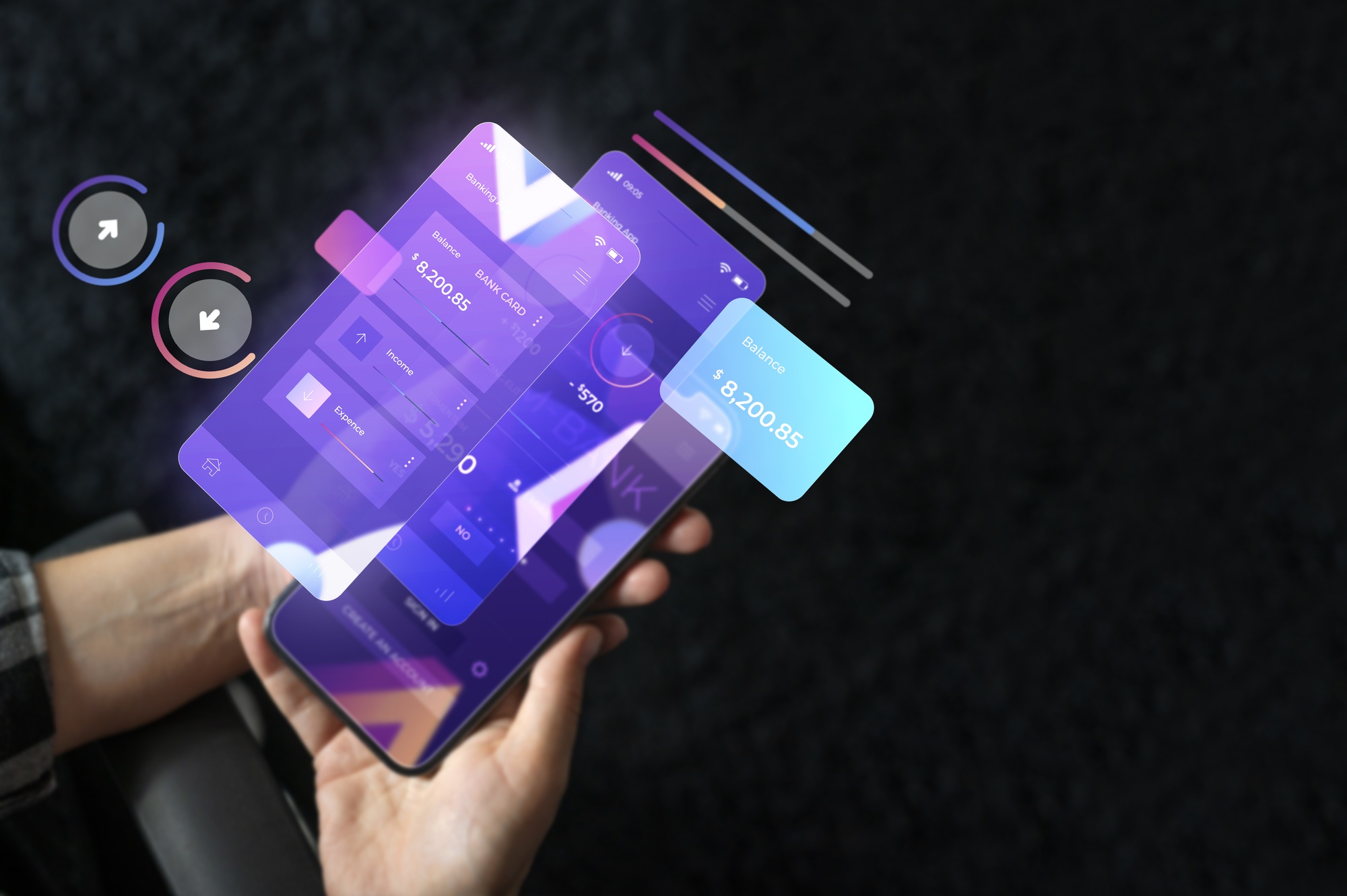Mobile apps have become an essential part of our lives in the current digital era, helping us manage everything from personal data to finances. However, there are serious hazards associated with these conveniences, such as cyber attacks and data breaches. Ensuring secure data storage has never been more important as our reliance on mobile apps to hold sensitive information increases.
This is where blockchain technology steps in. Originally designed to power cryptocurrencies, blockchain is now transforming how we approach data security in mobile applications. By offering a secure, efficient, and transparent framework, blockchain addresses many of the vulnerabilities associated with traditional storage methods. Leading companies, including top mobile app development companies in the USA, are adopting blockchain to safeguard sensitive data and provide users with unparalleled peace of mind.
What is Blockchain and How Does it Work?
Blockchain is fundamentally a decentralized digital ledger that keeps track of transactions on several computers. Since this ledger is immutable, data cannot be changed after it has been saved. Although blockchain is best recognized for enabling cryptocurrencies like Bitcoin, its uses go much beyond virtual money. The technology is perfect for storing sensitive data since it makes record-keeping visible and safe.
Why Data Security in Mobile Apps Matters
Since mobile apps handle everything from payment information to personal data, it is essential to make sure that data is maintained securely. Without adequate protection, mobile app data may be susceptible to hacks, data breaches, and unauthorized access due to the growing sophistication of cybercriminals.
Because we, as users, rely on apps to protect our personal information, developers place a high premium on strong security features. In addition to undermining user confidence, insecure data storage might result in monetary loss and legal issues.
How Blockchain Can Enhance Security in Mobile Apps
A novel method for safe data storage in mobile apps is provided by blockchain. Blockchain disperses data among several nodes, or computers, as opposed to keeping it all in one place. Because hackers would need to get access to every node in order to alter the data, this decentralization makes system breaches all but impossible.
Additionally, blockchain offers a high degree of encryption, which makes it very impossible for unauthorized parties to access or change the data.
Decentralization: The Key to Blockchain Security
Blockchain distributes data over a network of computers, or nodes, as opposed to traditional centralized systems, which keep data on a single server. Every node has a copy of the data, and every modification needs to be confirmed by several network users.
Because blockchain is decentralized, even if one node is compromised, the other nodes will still have the proper version of the data, making it less susceptible to assaults.
Immutability: A Major Advantage of Blockchain
Another noteworthy aspect of blockchain technology is immutability. Data cannot be removed or altered once it is stored on a blockchain. This implies that mobile app developers may guard against malicious actors changing user data by making sure it stays safe and unaltered.
Immutability, for instance, guarantees that data cannot be changed to conceal fraud or other criminal activities when it comes to recording financial transactions or medical records.
Smart Contracts and Their Role in App Security
These contracts give mobile apps an additional degree of security by automatically executing when specified criteria are satisfied.
A smart contract might, for instance, guarantee that only authorized users have access to sensitive information or that some information is not disclosed until specific requirements are met. This removes the need for middlemen and lowers the possibility of fraud or human error.
End-to-End Encryption with Blockchain
Passwords, credit card information, and private messages are examples of sensitive data that must be protected with end-to-end encryption. By guaranteeing that only the designated recipient may decrypt the data, blockchain technology can offer this encryption.
Blockchain’s strong cryptographic protocols guarantee that information sent between servers and mobile apps is shielded from interception, protecting user privacy and thwarting unwanted access.
Reduced Risk of Data Breaches
Data leaks are now a big worry for businesses and people alike. Because blockchain makes it extremely impossible for hackers to access huge volumes of sensitive data at once, it can drastically lower the danger of these breaches.
The distributed ledger mechanism of blockchain ensures that the other nodes have safe copies of the data, even in the event that one node is compromised. Additionally, it is much simpler to monitor and audit any unwanted attempts to access data because of blockchain’s transparency and immutability.
Transparency and Accountability in Data Handling
Because of blockchain’s transparency, all transactions are accessible to network users. Because of this, it is simple to monitor who has viewed the data and whether any changes have been made. This degree of openness guarantees that data management is carried out in a morally and legally responsible manner and adds another level of accountability.
Blockchain’s Impact on App Performance
Blockchain technology can affect mobile app performance even if it has several security advantages. Blockchain may result in slower processing times than traditional centralized databases since it uses several network nodes to verify transactions.
App developers must strike a compromise between the blockchain’s security advantages and their apps’ performance needs. To address these performance issues, scalability solutions are being developed as blockchain technology advances.
Challenges of Implementing Blockchain in Mobile Apps
There are difficulties in integrating blockchain technology into mobile applications. The technological difficulty of integrating blockchain with current app architectures is one of the main obstacles. To create safe and effective systems, developers must possess a thorough understanding of blockchain technology and its uses.
Furthermore, blockchain’s higher processing demands may have an effect on the processing speed and battery life of mobile devices, which may have an effect on user experience.
Are Blockchain Solutions Suitable for All Apps?
Blockchain is not always the ideal option for every app, even though it provides increased security. Blockchain functionality may not be necessary for apps that do not handle sensitive data or necessitate decentralized systems. For instance, the additional complexity of blockchain technology could not be useful for a straightforward weather app or game.
App developers must carefully consider the app’s goal, security requirements, and performance considerations while determining whether blockchain is the best option.
How App Developers in San Francisco Are Leading the Charge
App developers in San Francisco are at the forefront of integrating blockchain technology into mobile apps. The city’s thriving tech ecosystem, coupled with the demand for innovative solutions, has made it an ideal hub for blockchain experimentation and development.
Blockchain technology is being advanced by San Francisco-based developers, not only for cryptocurrencies but also for more secure, open, and effective mobile applications. The future of safe mobile app development is being shaped by their contributions.
Future of Blockchain in Mobile App Development
We can anticipate that more mobile apps will integrate blockchain technology into their security frameworks as it develops further. Blockchain may soon be a standard feature for mobile app developers because of improvements in scalability and speed optimization.
Blockchain will be the preferred option for app developers that are concerned with privacy and data security because of its capacity to store data safely while preserving transparency and immutability.
Conclusion
Blockchain is revolutionizing the way mobile apps handle data storage and security. By offering decentralization, immutability, and transparency, blockchain ensures that sensitive data is protected from unauthorized access and tampering. For app developers in San Francisco and around the world, adopting blockchain can enhance the security and trustworthiness of mobile apps, making them a better choice for users concerned about privacy.
FAQs
1. What is blockchain technology and how does it work?
Blockchain is a decentralized digital ledger that safely and permanently logs transactions. By spreading data among several computers, it makes it more difficult for hackers to change or manipulate the data.
2. How does blockchain improve mobile app security?
By employing robust encryption techniques and decentralizing data storage, blockchain improves security. It makes it nearly impossible for hackers to compromise the system and guarantees that data cannot be changed.
3. Is blockchain suitable for all mobile apps?
Not every application requires blockchain technology. Apps that handle sensitive data, need strong security, and benefit from transparency and immutability will benefit from it the most.
4. How does blockchain impact app performance?
Because blockchain is decentralized and requires numerous nodes to verify transactions, it might cause app performance issues. To enhance performance, scalability options are being developed.
5. Why are app developers in San Francisco leading in blockchain adoption?
The IT community in San Francisco is flourishing, and its developers are leading the way in incorporating blockchain technology into mobile applications to build more transparent, safe, and effective processes.




